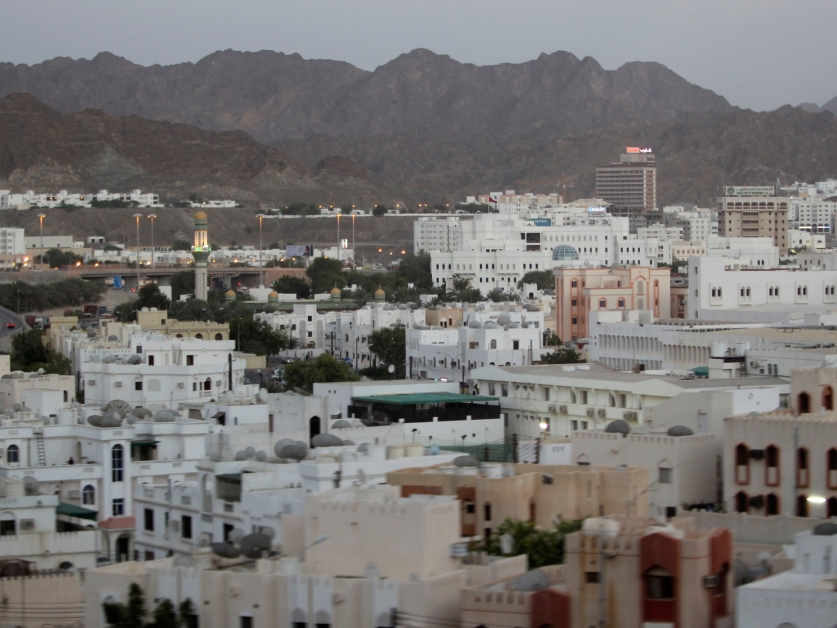Near Oman’s mountain-crested capital of Muscat, a rare act of violence last week shook a peaceful country largely bereft of even petty crime.
Gunfire rang out, and shouts of “Oh God!” were heard on July 15 in Wadi Kabir, a district east of Muscat, as three gunmen entered the Imam Ali Mosque.
Congregants were gathered for a major religious event for Shia Muslims. But the event ended with five people killed – four Pakistani nationals and a policeman – and at least 30 others wounded, according to Omani and Pakistani authorities.
In a country known for “exceptional” religious tolerance and a long tradition of coexistence, the real target might have been Oman’s stability, especially given its role as a regional mediator, say analysts.
Soon after, ISIL (ISIS) claimed responsibility for the attack – its first ever of an operation in the Gulf nation.
But experts said it is unclear if the attack was actually carried out by ISIL. More than a week after the attack, the group has offered no evidence except a video of the three alleged bombers — supposedly brothers — pledging allegiance to ISIL’s leader.
With the region and world focused on Israel’s brutal war on Gaza, ISIL — whether or not it was actually behind the attack — may be trying to stay relevant, heightening sectarian divisions, especially in places where virtually none exists, analysts suggest.
Sowing discord to divert
“It is clear that [ISIL] relies on a strategy of claiming responsibility for attacks even when it had no actual involvement, with the aim of inciting chaos and sectarian strife,” Faozi Algoidi, a research fellow at the Middle East Council on Global Affairs, told Al Jazeera.
“By asserting responsibility for incidents that may originally be accidental or socially motivated, the organisation enhances the sectarian and terrorist nature of these events, bringing the issue of sectarian conflict back to the forefront.”
ISIL’s goal may be to show that the organisation is still active and capable of striking anywhere, to stir fear and increase sectarian tensions in places of otherwise security and peace, like Oman, he added.
This may have been why the attack occurred on the occasion of Ashura, among the holiest times of the year for Shia Muslims, according to Andreas Krieg, a professor at King’s College London and CEO of MENA analytica, a MENA-focused political risk firm.
“That’s exactly what [ISIL] wanted to achieve … polarise sectarian dialogue and discourse in a very tolerant and inclusive country, and also across the region,” Krieg told Al Jazeera. “They were looking for an iconic moment where they can have an impact.”
The attack also likely occurred at this time because armed groups perceive that the region’s intelligence agencies are focused more on Israel’s ongoing war in Gaza, say analysts.
“This timing suggests a strategic choice by [ISIL] to exploit perceived vulnerabilities,” Harley Lippman, an adviser at the USAID Partnership for Peace Fund, focused on Middle East peace efforts, told Al Jazeera.
The attack in Oman follows similar acts in Russia and Iran. In March, the group said it was behind an attack that killed more than 140 people at a concert hall near Moscow, and in January it claimed responsibility for two explosions in Kerman that killed nearly 100.
The number of operations claimed by ISIL this year compared with last year has doubled, further indicating a hidden agenda to divert attention in the region from the situation in Gaza, said Algoidi.
Why Oman?
Beyond its stability, Oman may have been singled out for the attack due to its role as a frequent regional mediator, say analysts.
In the conflict in Yemen, in particular, Oman has been trying to bridge a gap between the Iran-aligned Houthi group and the Saudi-backed government. “The fact that the Omanis are trying to create cohesion, consensus in Yemen and trying to solve the conflict is something that [ISIL] disagrees with,” said Krieg. “They need conflict in Yemen to thrive.”
Oman’s ties with Iran may have also embittered the group. ISIL views Tehran as an “archenemy”, Krieg added.
An ISIL network existing in Oman is highly unlikely, Krieg said, and the incident rather points to the work of a cell with links to Yemen. The group’s cell structure means “lone wolf” ISIL-linked groups can launch operations even without membership within ISIL itself, he explained.
He believes it is a single, isolated event and not a resurgence of the group — at least not in the Gulf region. “This can happen literally in any country. It can happen in the UK,” said Krieg.



